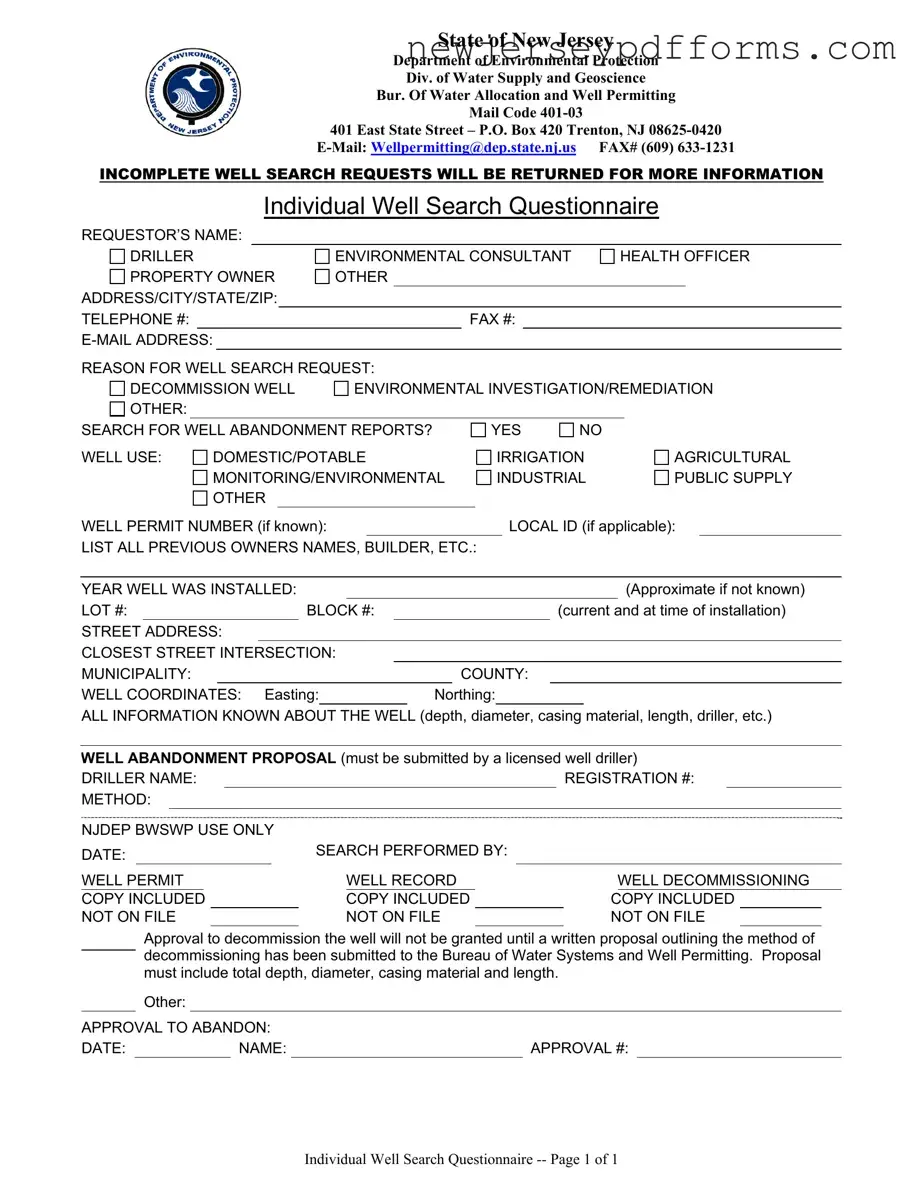What is the purpose of the NJ DEP Well Search form?
The NJ DEP Well Search form is designed to help individuals and organizations request information about wells in New Jersey. This can include details about well permits, abandonment reports, and other relevant data. Whether you are a property owner, a driller, or an environmental consultant, this form is essential for accessing important well-related information.
Who can submit a Well Search request?
Any individual or organization with a legitimate reason can submit a Well Search request. This includes property owners, drillers, environmental consultants, health officers, and other stakeholders interested in well information. Just make sure to provide accurate details on the form to facilitate the search process.
What information do I need to provide on the form?
You will need to fill out several fields, including your name, contact information, and the reason for your request. Additionally, details about the well itself are crucial. This includes the well's location, previous owners, installation year, and any known characteristics such as depth and diameter. The more information you provide, the easier it will be for the NJ DEP to assist you.
How long does it take to receive a response after submitting the form?
The response time can vary based on the volume of requests the NJ DEP receives. Typically, you can expect a response within a few weeks. If your request is incomplete, it may take longer as the NJ DEP will need to contact you for additional information.
What should I do if my Well Search request is returned as incomplete?
If your request is returned, carefully review the feedback provided. You will need to supply any missing information or clarify your request before resubmitting. Make sure to double-check all fields for accuracy to avoid delays.
Can I request information about well abandonment reports?
Yes, you can request information about well abandonment reports. Simply indicate your interest in abandonment reports on the form. This will help the NJ DEP focus on the specific information you need regarding well decommissioning or abandonment.
Is there a fee associated with submitting a Well Search request?
Currently, there is no fee for submitting a Well Search request to the NJ DEP. However, it's always a good idea to check for any updates or changes in policies that may apply. Keeping informed can help you avoid any unexpected costs.
How can I contact the NJ DEP if I have further questions?
If you have more questions about the Well Search form or the process, you can reach out to the NJ DEP directly via email at Wellpermitting@dep.state.nj.us. You can also send a fax to (609) 633-1231. They are there to assist you with any inquiries you may have.

